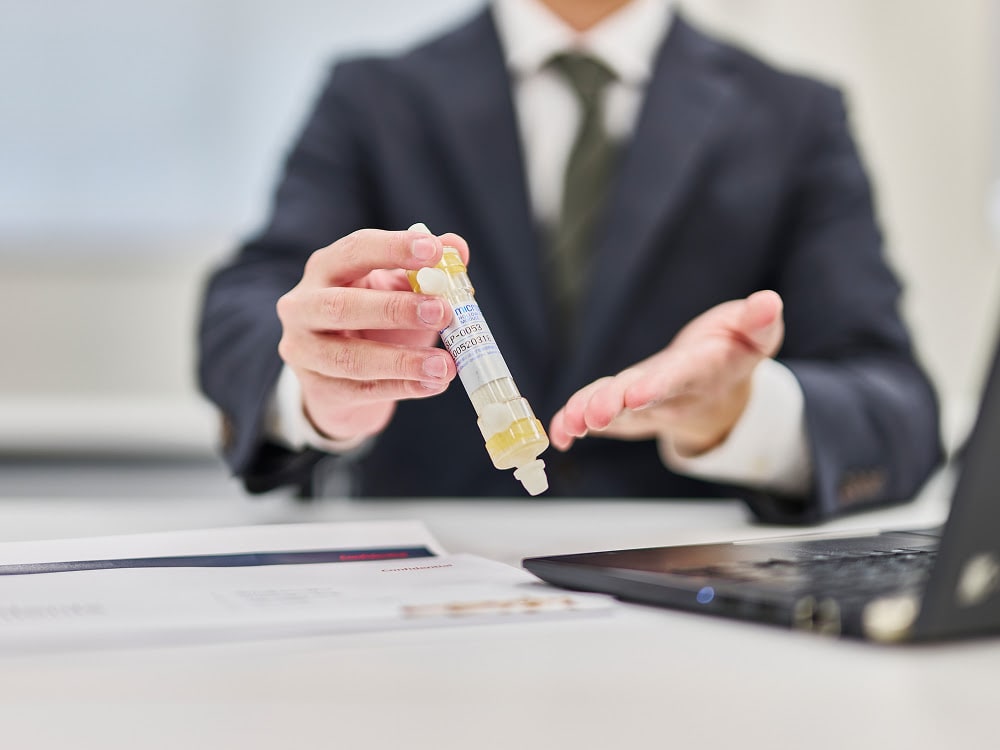Module Product Specifications and Performance
Microza® is designed for water-based filtration, so application to liquids containing organic solvents is often difficult. However, depending on the combination of membrane module and organic solvent, use may be possible.
For details,Please use this inquiry formPlease contact our company.
It varies depending on the membrane module used, the operating environment, and the conditions.
For water treatment applications, there are operational records of about 10 to 15 years depending on the type of raw water and actual operating conditions. During equipment design, proposals can be made based on the desired replacement life (subject to conditions).
For chemical industry applications, it depends on usage frequency, operating rate, and the properties of the liquid to be filtered, but generally consider 1 to 2 years, and up to 3 years at most.
For details,Please use this inquiry formPlease contact our company.
Generally, the service life of a membrane module is determined by one of the following: (1) when a decline in water permeability prevents processing within the specified time, (2) when cracks or breaks occur in the hollow fiber membrane causing leakage, or (3) when module components are damaged due to aging. In the chemical industry, the service life is reached when either (1) or (2) occurs first after the start of use.
It depends on the water quality and the type of coagulant. For details, please contact us through this website.
Design, Operation, and Maintenance
For water treatment applications, information on the type of raw water, water volume, water quality, and a proposed system configuration is required. For water quality, minimum water temperature, turbidity, organic matter (COD and TOC), and inorganic substances such as iron and manganese are needed. Other factors, such as the expected membrane life and the necessity of a standby system, are also determined to enable system proposals.
It varies depending on raw water conditions, past operating status, and water quality load. Proposals will be made based on operating conditions, so please contact us through this website.
Introduction, Disposal, and Legal Procedures
First,Please use this inquiry formplease contact our company. After confirming the properties, purpose, equipment, and environment of the liquid you intend to use with the membrane module, we will propose the appropriate membrane module model.
It depends on the type of membrane module. If disposing, please handle appropriately in accordance with the Waste Management and Public Cleansing Law.
Membrane modules, equipment, and related technical information may be subject to regulations such as the Export Trade Control Order. If the items fall under regulated categories, prescribed procedures such as export license applications may be required.
Questions About Sample Testing
It depends on the test content, but it is 200,000 to 300,000 yen per test.
The required liquid volume for testing varies depending on the filtration purpose, verification items, concentration ratio, and target purification level. Please consult us via the inquiry form.
A laboratory test can determine the compatibility (membrane suitability) between the selected hollow fiber membrane and the target liquid, optimal operating conditions, water permeability (maximum and design filtration flow rates), possible concentration ratio, total water addition required for purification, and the number of modules needed for systemization.
It is available for purchase.
As a general rule, separation tests of the target liquid using pencil-type modules should be conducted by the customer. However, in special cases, Asahi Kasei can conduct such tests for a fee. Please consult us via the inquiry form.
They can be purchased from scientific equipment distributors such as Advantec Toyo Kaisha, Ltd. and Funakoshi Co., Ltd. Please refer to their websites.
The filtration method is described in the instruction manual enclosed with the pencil-type module. Please refer to it. Test procedure documents are also available, so please consult us via the inquiry form.
The purpose of using a pencil module is to separate the target liquid into filtrate and concentrate, analyze the properties of each, and confirm whether the intended separation process is achieved. For water permeability, testing with a laboratory module is required.


